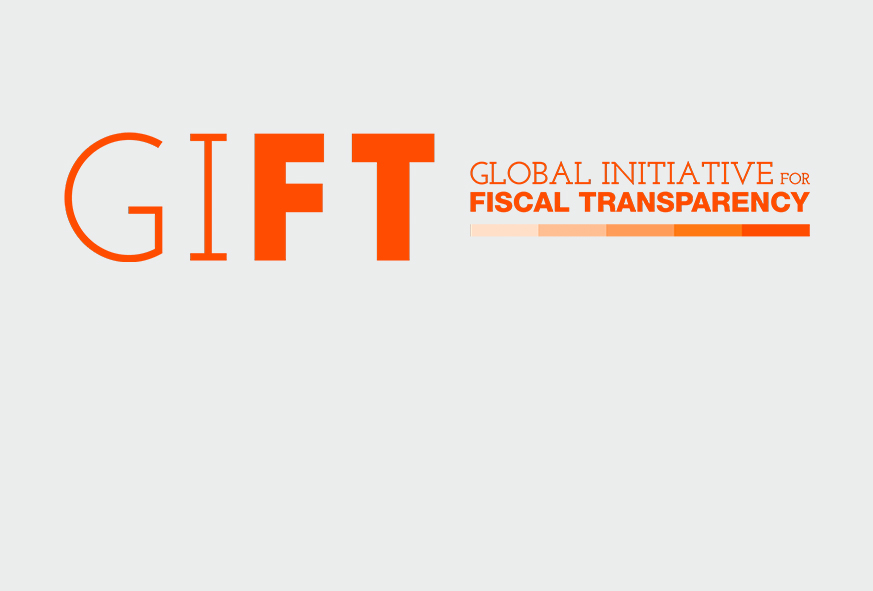“Publish
and they will come”, that
was the initial approach
to proactive fiscal
transparency. However,
this hypothesis does not
usually stand, unless the
potential users are set at
the center of the
publishing design process.
With that in mind, we have
developed a Tutorial
with videos + supporting
documents with tools, tips
and international
examples, based on the accumulated
experience of the last
ten years
of the GIFT network
champions (19 Governments
+ 14 CSOs + 10
international
organizations), in their
processes of publishing
meaningful fiscal
information for the
public. It is currently
available in Spanish
with the English
version coming soon!
Course
the Tutorial on Udemy for
free and get
your certificate or watch
the separate videos on
Youtube and download the
documents here.
|
|
 |
|
18
VIDEOS
|
 |
|
10
SUPPORT DOCUMENTS
|
|
|
What
is really happening in
Chile with social
breakouts and why are
the budget and fiscal
policies at the core of
the national debate?
|
|
Past
October, Chile saw
its customary
peace altered due
to social protests
that erupted after
a public transport
fare increase.
Massive
demonstrations
rapidly spread
throughout the
country. To
understand what
happened and map a
road ahead, we
need to look at
the roots of
public discomfort,
which is strongly
related to tax
privileges,
structural wealth
imbalance,
increasing
inequality and
lack of evident
impact of public
spending in the
most needed
sectors of the
population.
To get an
interesting view
of the complete
picture,
from an engaged
civil society
perspective, don’t
miss our audio
interview with
Jeannette von
Wolfersdorff,
Director of the
Fiscal
Observatory
Foundation of
Chile! A GIFT
Steward who has
been playing an
increasingly
active and
strategic role
in the process,
advocating for
social justice,
participation,
transparency and
accountability
in the budget
process.
|
|
|
The
road ahead: Fiscal
openness will play an
important role
The
Ministry of Finance of
Chile (a GIFT steward) has
announced the creation of
the “Ministerial Advisory
Commission for
Transparency, Quality and
the Impact of Public
Expenditure”. This
Commission will aim to
support and advise the
Ministry of Finance
through two
sub-commissions: (i)
Better public spending:
which will review the
necessary reforms to
increase the efficiency
and transparency of public
spending, and (ii) citizen
spending: it will propose
tools and mechanisms that
allow citizens to be
involved in the budget
process.
It will last a year and is
integrated in equal form
by 8 women and 8 men, who
will work ad honorem, in a
personal capacity, without
compromising the
institutions, bodies or
entities of which they are
part.
Read
more about the
commission.
|
|
Creating
public participation
opportunities in
Georgia
Tbilisi,
Georgia. December
2019. Europe
Foundation and the
Ministry of Finance of
Georgia.
|
|
In
the past years, Georgia
has had a clear interest
and mandate to improve
budget transparency in
the country. The country
has gone from 55 points
score (out of 100) in
the Open Budget Survey
of 2012 to 82 points in
2017. The country now
ranks among only five
other countries
considered to provide
“extensive” budget
information of the 115
countries assessed. Yet,
when it comes to
user-centered fiscal
transparency and public
participation
opportunities in the
budget cycle, there are
still challenges ahead
that civil society and
government would like to
overcome. Read
more
in this blog post and do
not miss the Public
Participation
Principles
translated to
Georgian
by the Europe
Foundation!
|
|
|
|
|
|
|
Financing
SDGs also requires
openness
Cotonou,
Benin. January 2020.
|
|
|
Public
finance tools are
essential for achieving
the Sustainable
Development Goals, as the
role of public budgets in
financing SDGs amount up
to 70% in some countries.
This is particular salient
in the West Africa region,
and governments are
working towards developing
and implementing
methodologies that allow
them to track the budget
impact and contributions
towards the SDGs targets.
In this context, GIFT
coordination team
participated in a workshop
organized by GIZ Benin for
nine countries of the
continent (Benin, Burkina
Faso, Cameroon, Cote
d’Ivoire, Ghana,
Mauritania Mozambique,
Namibia and Senegal). It
was a good occasion to
introduce examples of
methodologies and trends
on budgeting for SDGs,
including the importance
of fiscal openness in the
design and implementation
of such mechanisms.
|
|
|
People,
Planet and Public Finance
Podcast
Episode
two: Bearing the Burden
of the Climate Crisis
International
Budget Partnership,
January 21.
|
|
|
There’s
been a lot of talk about
the mobilization of
finance at both the
international and national
levels to address the
climate crisis, but how
much are individuals and
families spending to try
to mitigate the impact? A
new podcast from the
International Budget
Partnership discusses the
findings of a study by the
International Institute
for Environment and
Development
(IIED): “Bearing the
climate burden: how
households in Bangladesh
are spending too
much.” Authors Paul Steele
(IIED) and Shaikh Eskander
(Kingston University
London) share highlights
of the disturbing findings
on what poor, rural
households in Bangladesh
are spending to cope with
climate catastrophe, how
their security and future
prospects are hurt, and
what governments and the
international community
could and should do.
Listen
on Soundcloud.
|
|
|
PEFA
Supplementary Framework
for Assessing Gender
Responsive Public
Financial Management is
out!
Public
Expenditure and
Financial Accountability
(PEFA). January 23.
|
|
The
PEFA program is launching
a new supplementary
framework for
assessing
gender-responsive
public financial
management.
The supplementary
framework facilitates the
collection of information
to assess the extent to
which countries’ public
financial management
systems respond to
differing needs of men and
women, and subgroups
within these categories.
The framework has been
tested in seven countries
and is planned to be
conducted on a voluntary
basis as part of a regular
PEFA assessment.
|
|
|
|
|

